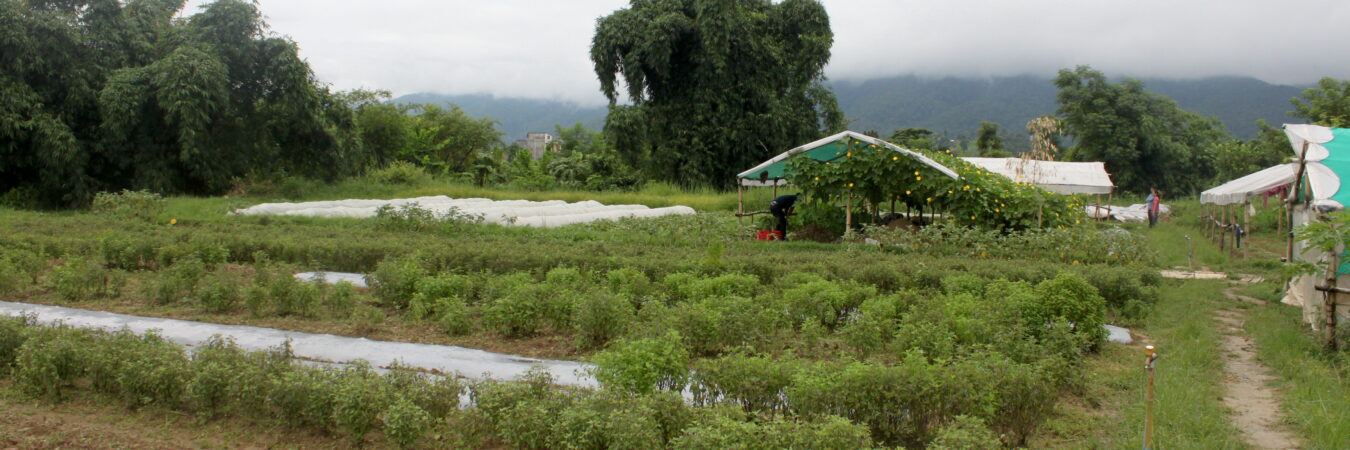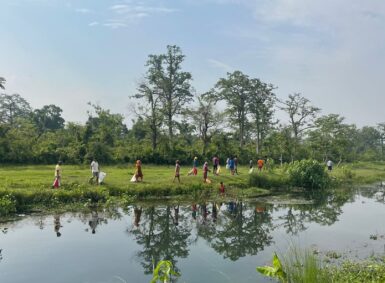
Supporting communities to conserve forest biodiversity and environment: A pilot initiative in Nawalpur, Province no. 4, Nepal
- Starting Date:
- February 1, 2018
- Ending Date:
- August 31, 2019
- Location:
- Nawalpur district
- Donor(s):
- Manfred-Hermsen-Stiftung
- Implementation Partner(s):
- N/A
This project was geared at scoping and building capacities for a larger conservation program, introducing immediate measures to address prevailing needs for conservation, and continuing support to the forest dependent communities for enhancing their livelihoods. Project activities were implemented in Kawasoti and Madhyabindu municipalities of Nawalpur district.
The project carried out a scoping study for a prospective conservation project area between Chitwan National Park and the mid-hills, with a plan of supportive project activities by identifying and demarcating critical areas for biodiversity conservation and landscape connectivity, determining the relative level of anthropogenic pressure on natural resources and threats to biodiversity, and identifying community forest user groups in the need of support for acquisition of management rights over their forest and demarcation of corresponding forest areas.
Capacity building of the forest dependent communities in the project area were carried out in biodiversity conservation, watershed resilience, and restoration of forest and natural stocks and sustainable harvesting of non-timber forest products (NTFPs). Along the course, trainings on sustainable forest management and account and record keeping were provided. Forest inventory including NTFPs were carried in Maharaja and Buddha community forest user groups (CFUGs), and the CFUGs were supported in revision of their operation plan and constitution. Furthermore, to promote livelihoods of the forest dependent communities, while addressing the wildlife damage in the area, the project promoted plantation of essential oil-bearing plants, with provision of seeds and sapling, exposure visits and plantation training to the communities. Furthermore, the livelihoods and conservation-based economic development of forest dependent communities were supported through entrepreneurship development training, business support to the lead firm, and establishment of processing unit to distilled essential oils from MAPs planted by the communities.

